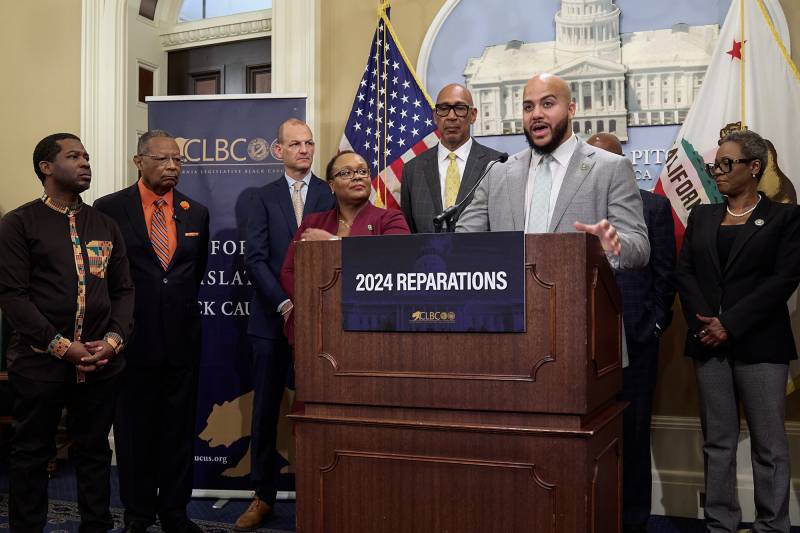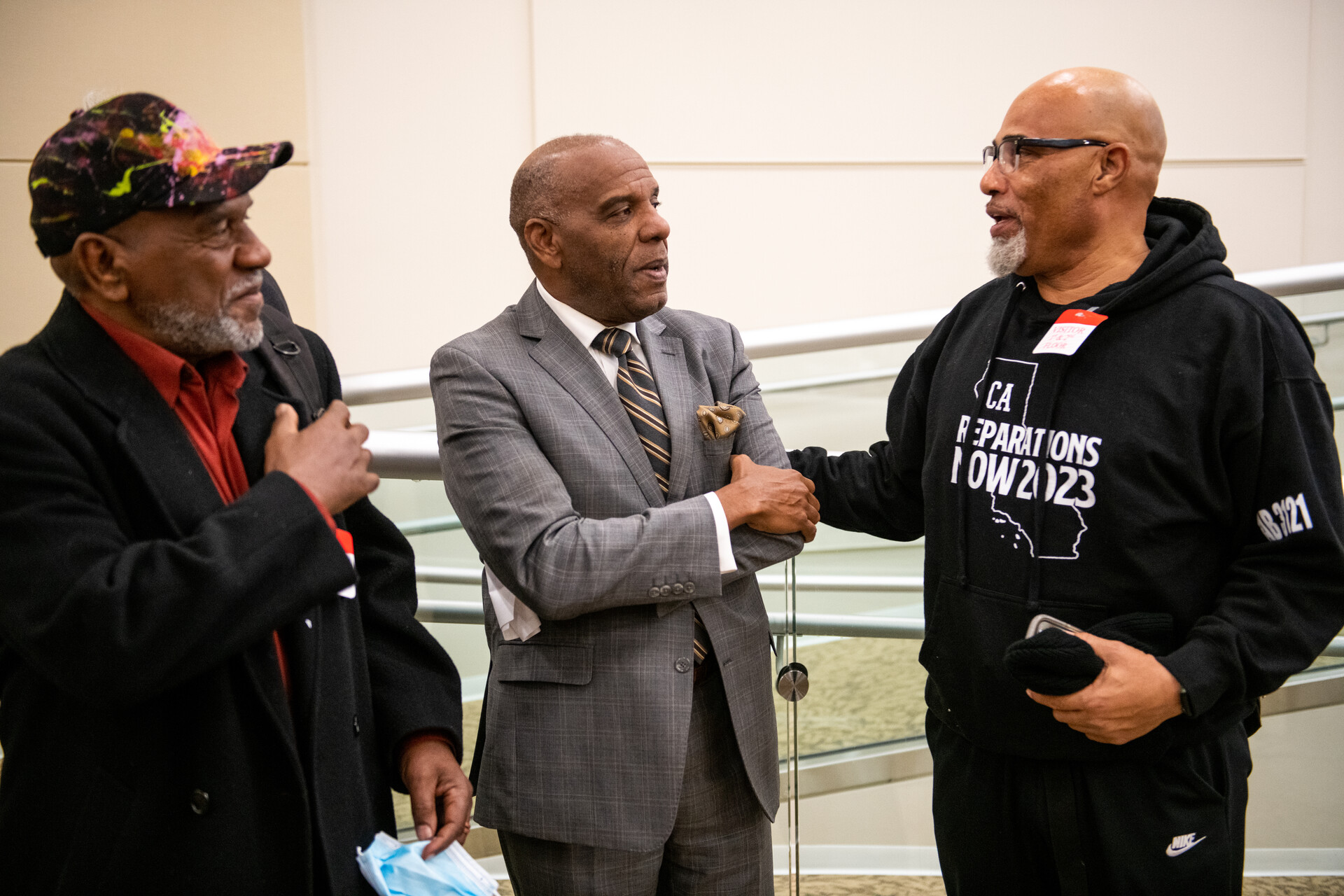A group of Black lawmakers in the state Legislature is pushing ahead with proposals to prioritize the descendants of enslaved people for college admissions and homebuyer assistance, despite attacks from the Trump administration on equity programs and tepid support for reparations legislation at the state Capitol.
A suite of proposals unveiled Thursday stems from a 2022 report detailing harms inflicted on Black Californians by the state government dating back to the 19th century, including laws passed by the state Legislature to aid enslavers. The Legislature and Gov. Gavin Newsom approved an official apology for the state’s role in advancing enslavement last year, but the governor and voters rejected other reparations bills.
“Even outside of the current [Trump] administration, these things are always a challenging conversation, especially with the fact that many people say, ‘Well, there was no slavery in California. I didn’t participate, I didn’t own slaves,’” said Sen. Akilah Weber Pierson (D–San Diego), the chair of the California Legislative Black Caucus.


